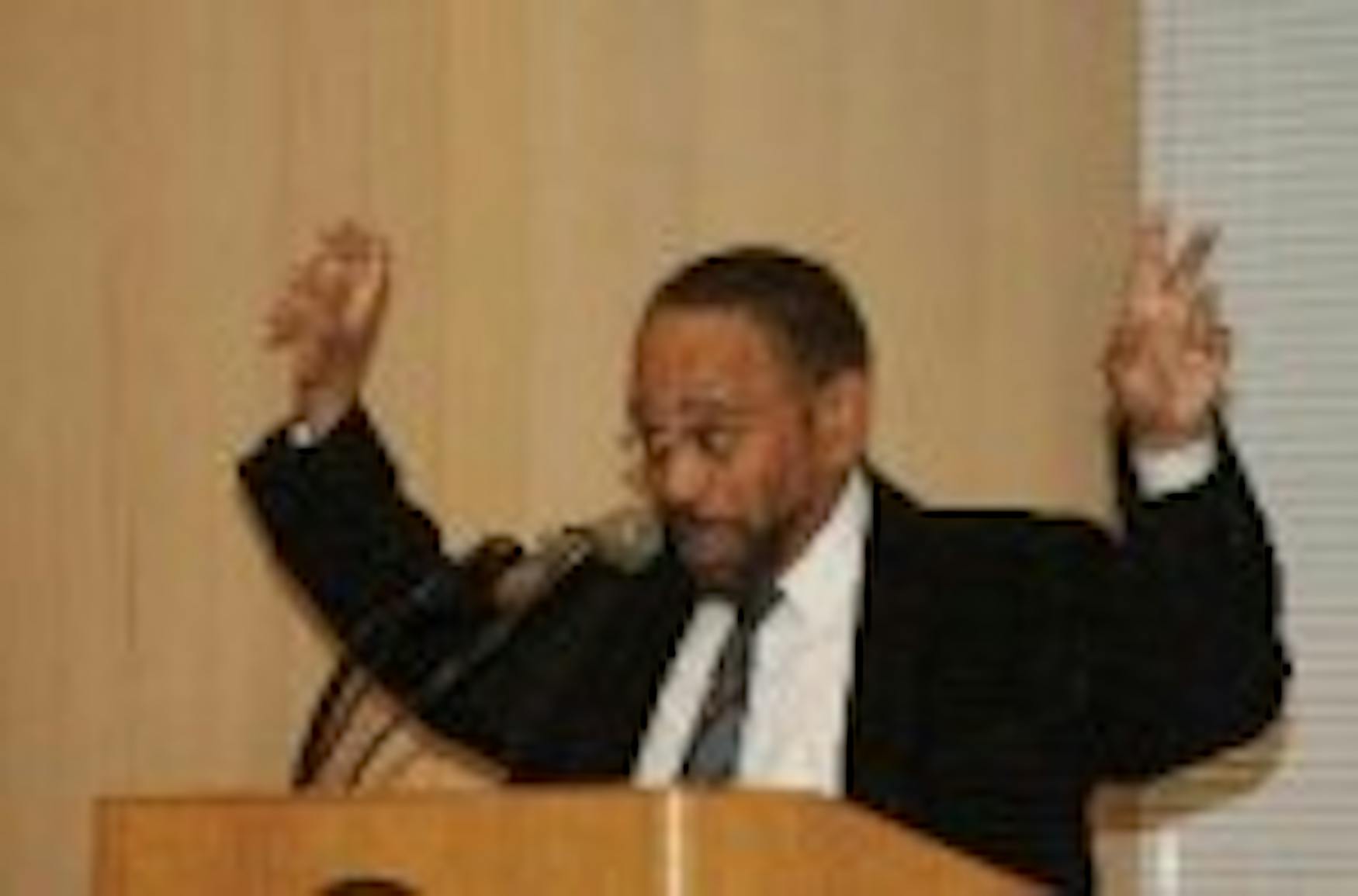Prof challenges meaning of the term 'diversity'
The Brandeis Black Student Organization kicked off Black History month Monday night at Gosman Sports and Convocation Center with a keynote address by Prof. Ibrahim Sundiata (AAAS) about how people should discuss black history, encouraging debate and challenging the idea of diversity.The term diversity, Sundiata said, tends to ignore Asians, gays and other minority groups. "Diversity craftily overshoots the term in question," he said. "The diversity of interest tends to be brown-skinned Americans."
Zamira Castro '11 opened the event with a poem about what being black entails and how African culture survives even in Hispanic populations.
According to BBSO co-president Suahd Iddrissu '08, the theme for this year's Black History Month at Brandeis is "Unity within the Diaspora." This was the first of a series of six events.
This year's Black History Month events have been in the planning stages for a year and were organized by Black History Month Coordinator Gabriel Gaskin '08.
Sundiata spent most of his lecture reading excerpts from Authentically Black by last year's speaker, John McWhorter, who remained nameless during the lecture.
He said he had "a discussion with McWhorter's ideas," reading them and offering his personal opinions and insight. Sundiata aired McWhorter's ideas because he felt that he had not used his best material in last year's lecture.
The material he read focused on how black history is too focused on ancient Egypt and on Africa and not enough on black Americans in recent history.
Sundiata said he agreed that more attention should be paid to black history as a whole but said, "I disagree with what he said about Egypt, because I think it's cool."
Sundiata spoke about how black history is too focused on heroes, which is problematic because "black common consensus shows heroes as isolated." He said that history portrays black heroes as exceptionally smart, but that there were many other black people who succeeded in college and in business.
He also addressed the issue of being stereotypically black, discussing how black entertainers were looked down upon in the early 20th century for acting too stereotypical, citing the example of actress Hattie McDaniel, the first black person to win an Academy Award, for her role as Mammy in Gone With the Wind.
Sundiata went on to discuss blacks who want to research their genealogy and find their homeland. According to Sundiata, black people should not have high expectations, mentioning how Oprah Winfrey was convinced that she was Zulu and then was disappointed to find out that she was in fact West African.
He also mentioned that research conducted into his own ancestry turned up a history of suicide, death and prison time. No one did drugs, he said, because drug use wasn't common yet. He went on to say that there was such a thing as "too much truth.



Please note All comments are eligible for publication in The Justice.